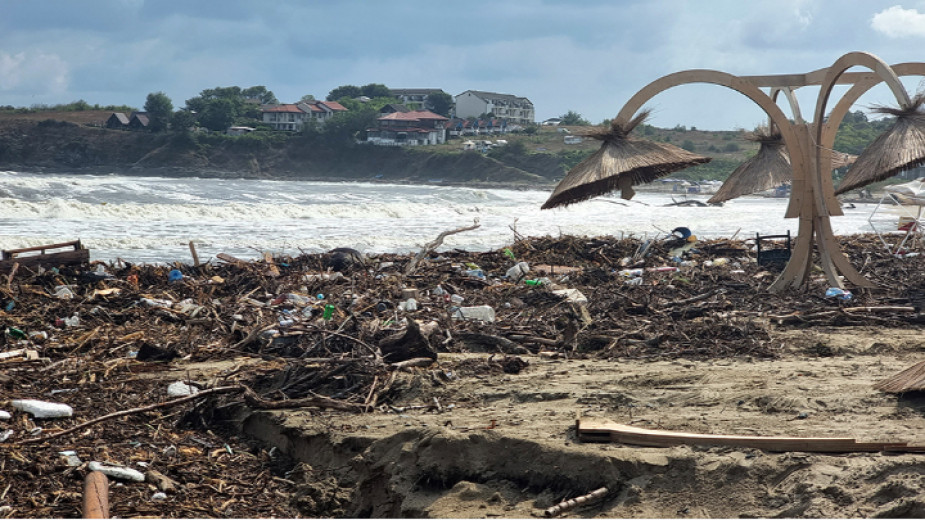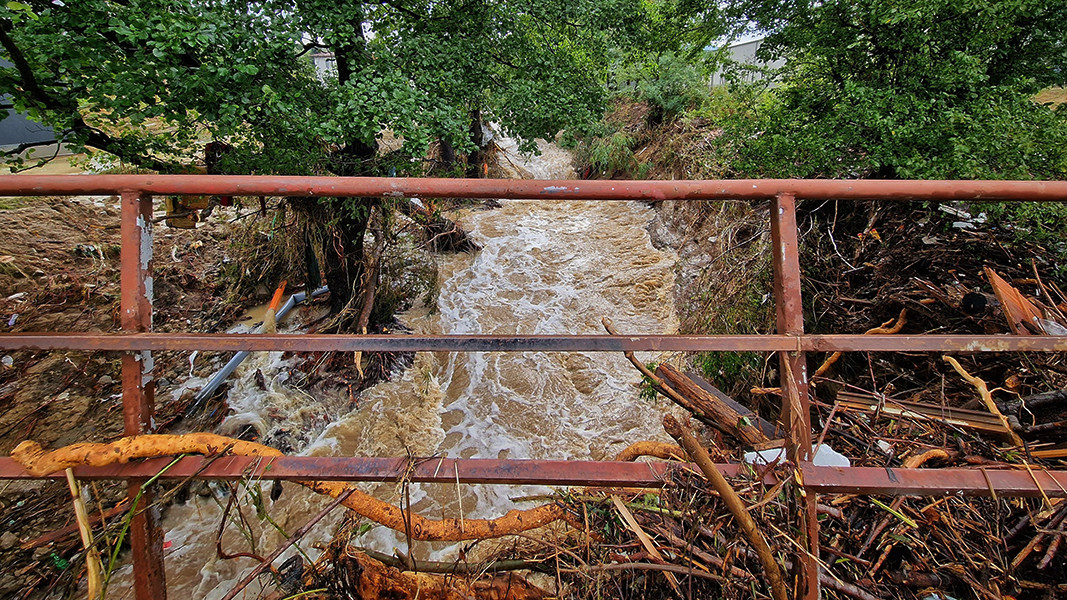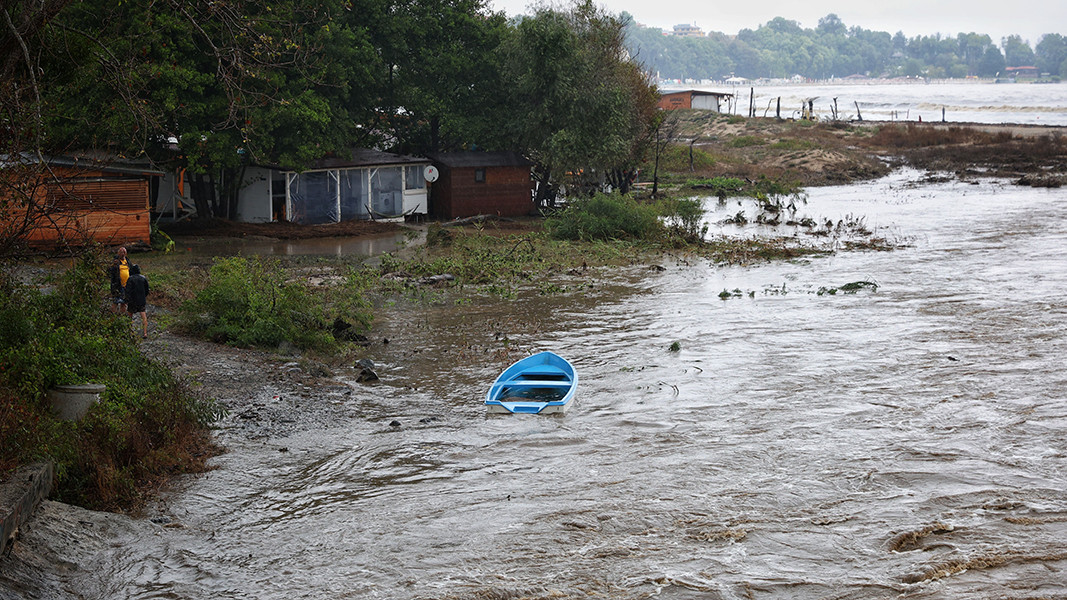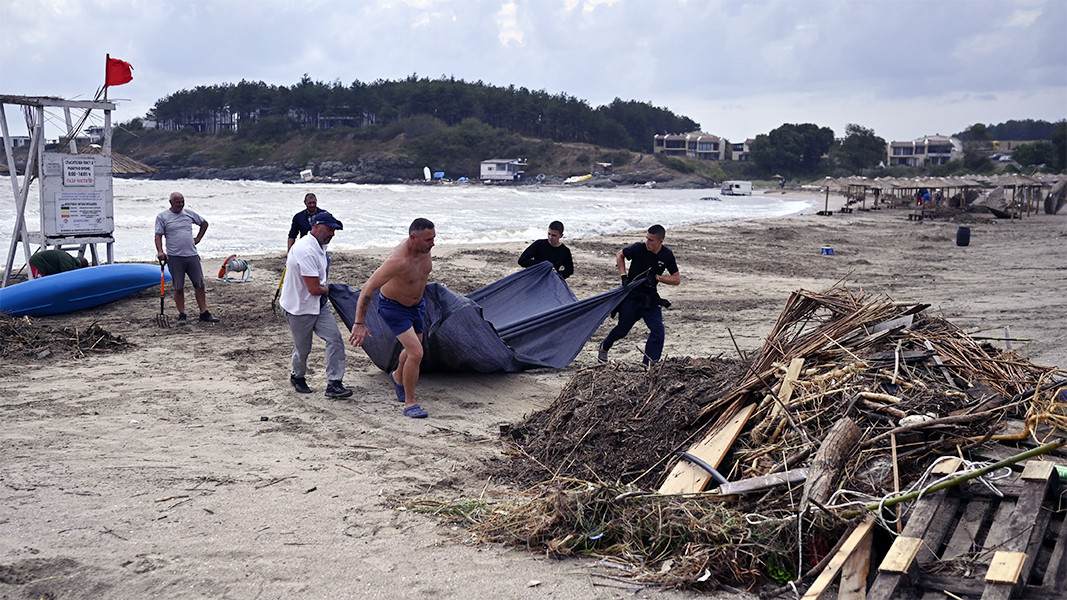 10
10
After the devastating flooding along the Southern segment of Bulgaria’s Black Sea coastline and the four lives lost, it is now time to count up the toll of the calamity.
The road to Sinemorets has been restored and is now open to traffic. There are no persons in distress, the land transport route between the two residential areas of Tsarevo, where a bridge collapsed yesterday, has been restored. The construction of a pontoon bridge between Tsarevo and Ahtopol is expected to begin today. Damage assessment is yet to be done.
In an interview with Silvia Velikova, the regional governor of Burgas Plamen Yanev commented on the various allegations that have been made in the wake of the calamity, for example negligence of infrastructure by the institutions:
“Unfortunately four lives were lost but we have no reports of any other people who are missing. Work in cleaning up and helping people affected by the flooding continues, hotels and private homes are being drained. We have reports of missing animals and we shall try to locate them. A commission is to be appointed to assess the damage and a probe will be launched to see what state the gullies and Veleka River are in, to establish whether there are any causes for the flooding other than the downpour itself.”
Stoyan Chaikov is a volunteer, and administers the Facebook group Tsarevo. He describes the situation after the flood as really awful. “So much damage – to homes, to the town’s infrastructure, but I think things will be all right,” he said for the BNR. What are the places hit by the flooding in need of, and what action is Stoyan coordinating?
“Together with my group I helped other people, we were helped with directions, so everything could be done quicker. All volunteers on site helped as much as they could, especially in the villages Kosti and Brodilovo where the situation was worst. I wouldn’t want to be anyone’s advocate, but it was a huge disaster. People over the age of 70 say they have never seen a calamity like it. Whether we have contributed to this thing happening as people, whether the cause is the logging in Mount Strandzha is something that is yet to be analyzed.”
In all countries where there is proactive political support for overcoming climate change problems, these changes have come after a major disaster, Georgi Stefanov from the Climate Coalition, former advisor to environment minister Borislav Sandov says in an interview with the BNR. “Thank God Bulgaria has not yet experienced a disaster on a scale as we have seen elsewhere in the world,” Georgi Stefanov says, and adds that the number of natural disasters in the past 30 years has trebled, compared to the previous 30, and that they are going to become more and more frequent.
“For Bulgaria almost 60% of the main risk is connected with floods such as this,” Georgi Stefanov explains and adds that we have had a number of strategic documents in various spheres for 20 years:
“Nevertheless, the state, which is now doing its job, has absconded from its duties when it comes to prevention,” the environmentalist says. “A cost-benefit evaluation has never been done in this country. How much is this damage going to cost society and the economy? We should compare these costs with the costs of preventing such a thing from happening in the future. Insurance companies do a lot of financial analyses like this, and they come up with an insurance rate which they offer their clients. A “disaster pool” system could be introduced that could be funded by everyone with small voluntary installments so as to generate the money for compensating for the damages incurred during different natural disasters.” 
It will take a great deal of money to restore Tsarevo after the flooding, says deputy mayor of the municipality Marin Kirov:
“The municipality took immediate steps to restore the town, but only to the extent of its capacity – things like cleaning up the town and the other populated areas, disposing of the rubbish left after the flood, restoring the bridges and other facilities. I am hoping things will get back to normal in 1-2 months’ time.”
Interview by Silvia Velikova, Horizont channel, BNR
Translated and posted by Milena Daynova
Photos: BGNES, BTA
The mountain resort of Bansko is set to become the capital of mountaineering culture, adventure, and travel, featuring films, exhibitions, and presentations that detail the limits of human possibility. From November 19 to 23, the "Bansko Film..
The Bulgarian Embassy hosted the second concert of the 17th season of the Bulgarian Music Society in Washington. On 14 November, guests enjoyed a unique show by two world-class artists, both originally from Bulgaria: Desi Jordanoff, a folk dance master,..
Generation Z students (born 1995–2012) are widely using artificial intelligence in their learning, with teachers reporting that more than 85% complete homework and study with the help of digital assistants. Children tend to see AI as a partner..
From fear and doubts to joy and support – Bulgarians react differently to the upcoming introduction of the euro on January 1, 2026. For..
On the eve of Christian Family Day, 21 November, dozens of couples from Dimitrovgrad renewed their wedding vows after spending more than half a century..
Teodora Byalkova joined the Bulgarian Sunday school "Sts. Cyril and Methodius" in Athens in the 2022/23 school year. At that time, she..

+359 2 9336 661
